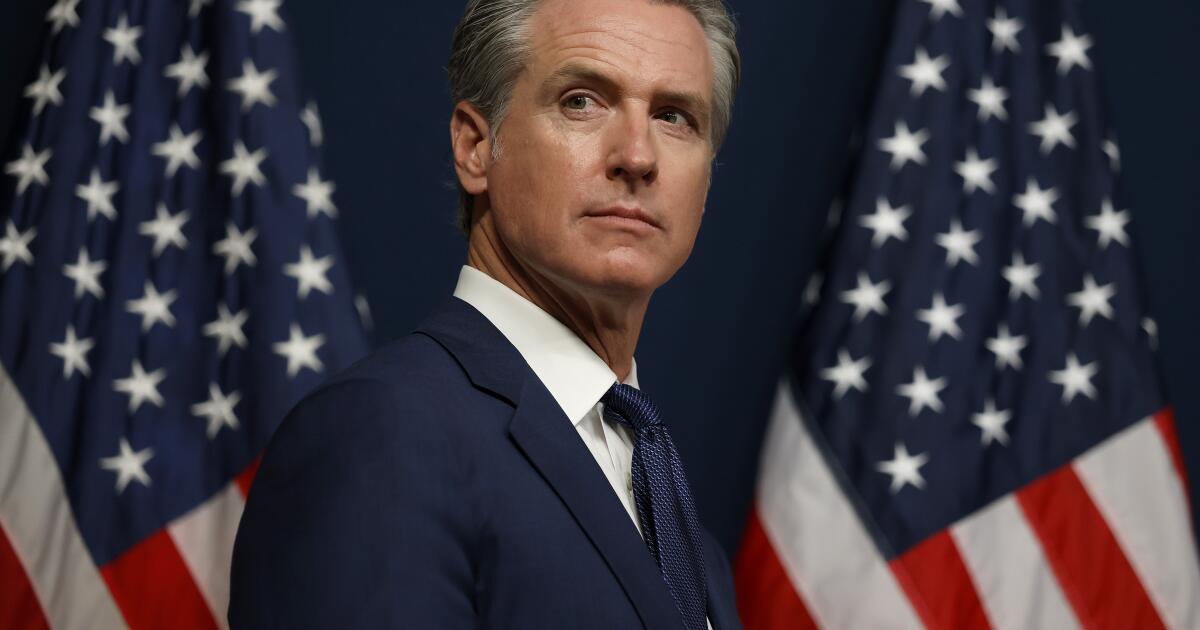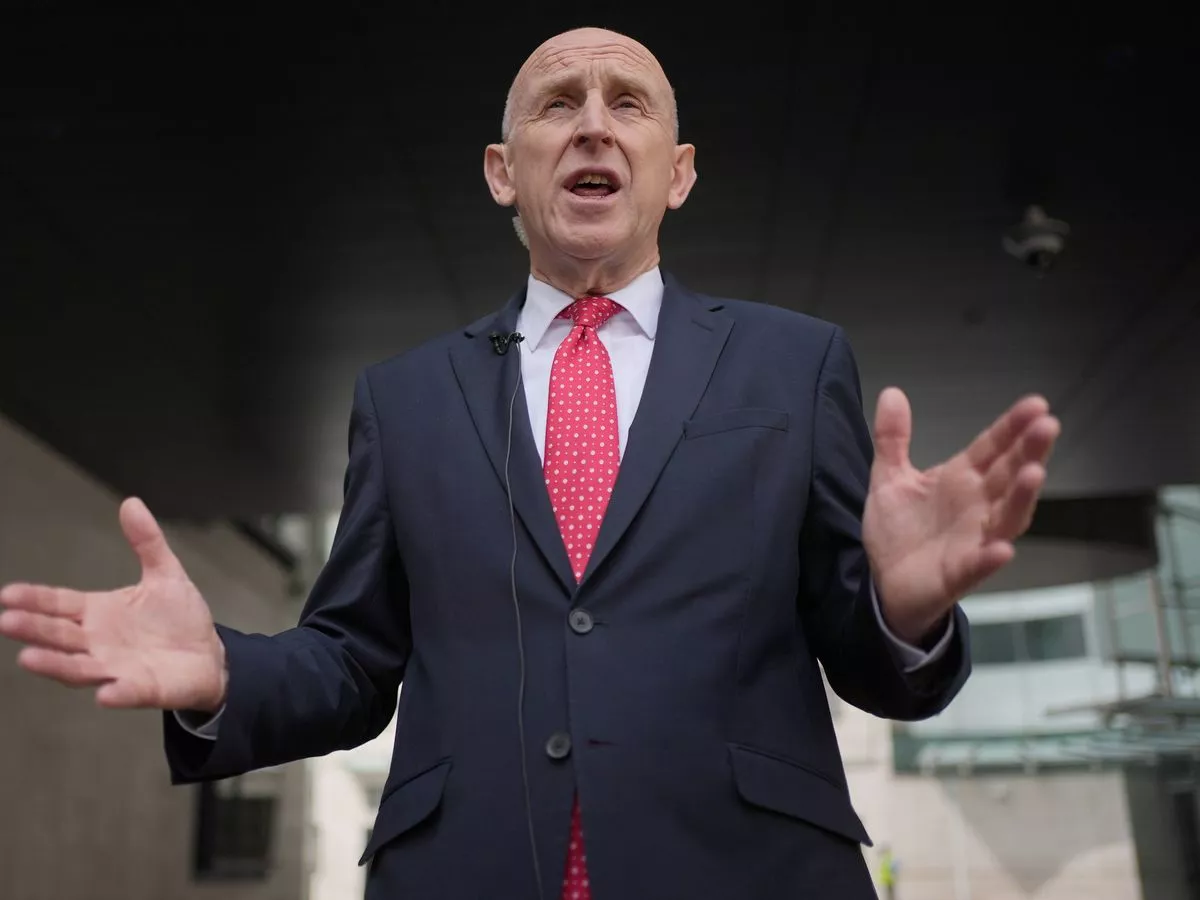
From military workers who won’t be paid to low-income mothers in need of food and older folks applying for Social Security, thousands of Connecticut residents will suffer under the government shutdown, Gov. Ned Lamont said Wednesday.
Lamont gave a briefing Wednesday morning to explain the impact of the federal shutdown — which began at 12:01 a.m. after a stalemate between Democrats and Republicans over health insurance subsidies — and what state officials are doing to mitigate it.
“We’ve been working very hard in anticipation of this terrible day,” Lamont began, noting that Connecticut, with its sizable reserves is in better shape than many states to deal with the fallout of the shutdown, which could leave federal programs unfunded and federal workers unpaid for the duration.
Looming health insurance spikes for millions are at the heart of the government shutdown
“I know a lot of families out there are probably pretty worried about their health care… worried about food and how they’re going to put a meal on the table. A lot of other things that will impact you. You’re a senior and want some help on Social Security or Medicare, you’re going to make a call and aren’t sure if anyone’s going to be there to answer the phone,” he said.
While he noted Connecticut can’t do the federal government’s job, Lamont said he intends to fill gaps where necessary, depending on how long the shutdown continues. Some programs have cash reserves and some are funded at least for a few weeks.
“It’s not our first rodeo, it’s not our first shutdown but these guys in Washington have got to get their act together. Republicans have the House, they have the Senate, they have the presidency,” Lamont said, laying responsibility at the feet Republicans in Congress who left Washington, D.C. to avoid further negotiations.
President Donald Trump did the opposite in a statement Wednesday morning, saying, “Democrats have officially brought on a full-blown government shutdown — engineered by the Radical Left lunatics who control of their (sic) party.”
“President Trump and Republicans have been clear: Republicans will not be held hostage by this unserious, shameful political gamesmanship by Democrats,” the White House statement said. “This shutdown is 100% on Democrats, whose radical agenda is poisoning our politics and punishing our people.”
Connecticut’s Congressional delegation, led by Rep. Rosa DeLauro, ranking member of the House Appropriations Committee, and Sens. Chris Murphy and Richard Blumenthal, have been adamant they won’t abandon their demand that funding for the Affordable Care Act credits that have allowed millions of Americans to access health insurance be restored.
With little political power, Democrats say they need to use the urgency of the shutdown as leverage before the credits expire at the end of the year and before the open enrollment period begins this fall. Connecticut residents who get their insurance through the exchange will likely get notices in the mail about their increasing premiums in the next few weeks, Lamont said.
National parks will remain ‘generally’ open during the shutdown, but Liberty Bell doors are closed
Officials estimate 4 million Americans will lose coverage without the credits. In Connecticut, 139,000 people are likely to be impacted.
Lamont seemed sympathetic to Republicans’ calls to wait on addressing health insurance and instead pass a short-term funding bill to end the shutdown.
“Republicans have sort of said ‘we’ll worry about health care later, let’s handle the shutdown now.’ That seems to me there’s a deal to be had there that doesn’t put our families in such incredible distress and uncertainty,” he said. “I really urge the players to get to the table and get this done. Do what you can to get back to the regular course of business.”
Until then, Lamont said, Connecticut would do what it can to protect residents.
Various programs
The state Department of Education has 90-days worth of funding for the school lunch program, state budget director Jeffrey Beckham said at the press conference. And LIHEAP, the home heating aid assistance program, has enough funding carried over from last year to launch and last through October. Medicaid is funded through the first quarter of 2026, DSS Commissioner Andrea Barton Reeves said. And block grants that support poor and low-income people through community action agencies are also funded through the first quarter of 2026.
The crucial pain points may come with the expensive programs many low-income residents rely on for food.
WIC
Women, Infants and Children, a grant program that provides food aid including formula, serves “50,000 moms with very young children and infants” in Connecticut, Lamont said.
“Their reserves are limited and we’re going to have to backstop that given the reserves that we have as the state of Connecticut. So I want those young families, those moms to know that your WIC card will continue to be good for the foreseeable future. We’re making sure that the government does not take that away from you.”
That program costs $200,000 a day, Barton Reeves said.
SNAP
A more general program that provides food aid to low-income people, SNAP, formerly known as food stamps, costs $72 million a month, Lamont said.
“It takes care of hundreds of thousands of folks … who are worried about going hungry. The good news there is that we’ve gotten enough in reserve to keep the SNAP benefits going so nothing changes at least through the month of October,” he said.
He referred to Foodshare, the regional food bank supplier, as back up emergency support. The state legislature recently tripled the amount of funding allocated to Foodshare after the Trump administration halted fresh food deliveries equivalent to about a million meals, Lamont said.
“We’re trying to backfill and make up some of that as best we can,” Lamont said.
Federal workers’ pay
Federal employees fall into a number of different categories, some of which, Lamont said, the state would step in to pay and others it would not.
“State employees who are paid for by the federal government, of which there are about 1,300, we’re going to continue paying for them. These are folks that inspect bridges and make sure they’re safe. They go to our hospitals and make sure they’re doing their job. We’re going to be able to manage that.
But there are an awful lot of other federal employees who may be furloughed,” Lamont said, referring also to TSA workers at Bradley International Airport who may be working but not getting paid.
During the last shutdown, the state brokered a deal with banks to offer federal employees an interest-free loan that was repaid once government operations and workers’ pay resumed. While Lamont said he was looking into the option, it may not be possible this time.
“We did that last time, knowing the federal government was going to pay back those folks that were furloughed. This time around there’s a guy named Russ Vought down there at OMB that’s saying ‘you know, we may fire these people’ … so there’s a lot more risk to us.”
Asked whether he would use surplus funds to cover federal programs, Lamont said things were still uncertain.
“Can I make up all that shortfall? No. Are Jeff and I working with the commissioners to make sure we take care of the most vulnerable? Yes. You know, one step at a time. I’m dealing with a shutdown that happened 11 hours ago and doing everything I can to take care of people with that urgency.”
TSA
Officers with the Transportation Security Administration who manage airport security, air traffic and other functions are considered essential. Those employees will continue working during the federal shutdown, but will not get paid.
“Approximately 61,000 of the agency’s 64,000 employees are considered excepted or exempt and TSA will continue operations to keep the travelling public safe. The remaining employees will be temporarily furloughed,” the TSA said in a statement to the Courant.
“While TSA is prepared to continue screening about 2.5M passengers a day, an extended shutdown could mean longer wait times at airports. We kindly ask for our passengers’ patience during this time. Despite this challenge, we will remain vigilant and focused on performing our vital security mission on behalf of the American people.”



